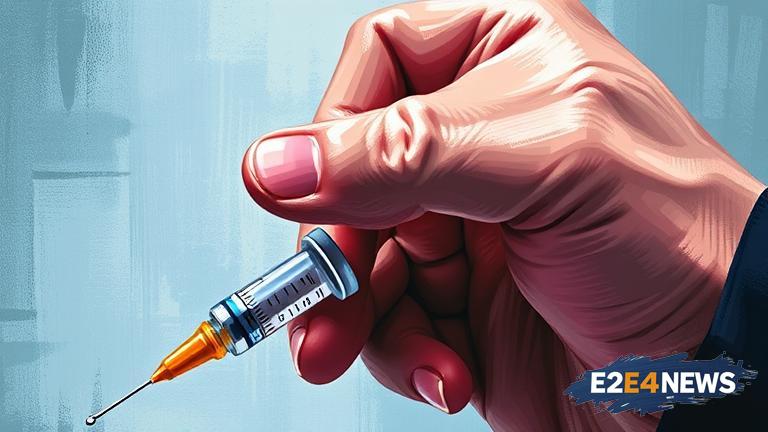A study published in a reputable scientific journal has come under fire from Robert F. Kennedy Jr., a prominent vaccine skeptic, who is demanding its retraction. The study in question examined the relationship between vaccines and aluminum, a common adjuvant used in vaccine formulations. Kennedy Jr. claims that the study’s methodology is flawed and that its findings are misleading, potentially putting public health at risk. The journal’s editors, however, have refused to retract the study, citing the rigorous peer-review process it underwent before publication. The controversy surrounding this study highlights the ongoing debate over vaccine safety and the role of aluminum in vaccine formulations. Aluminum has been used as an adjuvant in vaccines for decades, and its safety has been extensively studied. However, some researchers and vaccine skeptics, like Kennedy Jr., argue that aluminum can cause harm, particularly in children. The study in question found no link between aluminum in vaccines and adverse health effects, but Kennedy Jr. argues that its methodology was flawed and that it ignored critical evidence. He claims that the study’s authors failed to account for the cumulative effect of aluminum exposure from multiple vaccine doses, which could potentially lead to toxic levels of aluminum in the body. Furthermore, Kennedy Jr. argues that the study’s reliance on industry-funded research and its failure to disclose potential conflicts of interest undermine its credibility. The journal’s editors, on the other hand, maintain that the study underwent a rigorous peer-review process and that its findings are consistent with the scientific consensus on vaccine safety. They argue that retracting the study would be unwarranted and could undermine the integrity of the scientific process. The controversy has sparked a heated debate among scientists, vaccine advocates, and skeptics, with some calling for greater transparency and accountability in vaccine research. Others argue that the anti-vaccine movement, led by figures like Kennedy Jr., is misinformed and poses a significant threat to public health. The World Health Organization (WHO) and other reputable health organizations have consistently stated that vaccines are safe and effective, and that the benefits of vaccination far outweigh the risks. Despite this, vaccine skepticism remains a significant concern, with many parents and individuals expressing concerns over vaccine safety and efficacy. The aluminum adjuvant has been a particular focus of controversy, with some arguing that it can cause neurological damage and other adverse health effects. However, numerous studies have found no link between aluminum in vaccines and adverse health effects, and regulatory agencies, such as the FDA, have approved the use of aluminum adjuvants in vaccines. The debate over vaccine safety and aluminum is complex and multifaceted, with different stakeholders and interest groups presenting competing claims and evidence. Ultimately, the scientific consensus on vaccine safety and efficacy must be based on rigorous, peer-reviewed research and evidence-based decision-making. The controversy surrounding this study highlights the need for greater transparency, accountability, and critical evaluation of vaccine research, as well as the importance of addressing concerns and misinformation about vaccine safety. By promoting a more nuanced understanding of vaccine science and addressing legitimate concerns, we can work towards a more informed and evidence-based public discourse on vaccine safety and efficacy.
